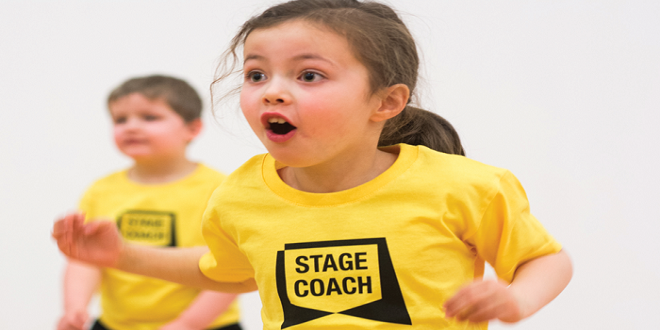
Theatre first became a passion for Stephanie Manuel at the age of 13 when she became involved with a local community pantomime. By the age of 16 she was putting on shows of her own. She says: ‘I started off being a performer but I wasn’t content to wait from one Christmas to another for the opportunity to be in a show.
So I started a youth drama group and wrote plays and hired halls.’ Brought up in Essex and then Surrey, Manuel left school at 16 to go to secretarial college on her father’s insistence and then got a job in an office. But she did not enjoy it and spent every spare moment she could taking part in amateur theatre. ‘I spent my days in one boring job after another as a way of making money.
But I hated all of them, she says. ‘It was only in the evenings, putting on theatre, that I came alive. At one point I belonged to three amateur theatre groups at the same time.’
But when Manuel tried to find a school where her son could learn how to sing and act as well as dance she discovered that there was nothing available. She decided to start a children’s theatre school in a disused school building. But when she asked the bank for a loan it turned her down because she had no business plan. So Manuel reluctantly pushed the idea to the back of her mind.
When she and her husband got divorced she focused her energies on bringing up her children, keeping her passion for theatre alive by writing plays and directing productions for amateur drama groups. But by now she was in her mid-thirties and it was getting hard to see where it would all lead. She says: ‘I was desperate to make headway in the world of musical theatre. But I felt I had messed up my chance of having a proper career because I had just been doing odd jobs that didn’t interest me.
When she was 44, however, Manuel met a bank manager called David Sprigg at a party. The chance encounter changed her life. ‘He told me his passion was to start a small business, says Manuel. ‘So I said, that’s funny because I have a business idea, for a theatre school.’ They got talking and decided to start a performing arts school together for children aged between 6 and 16.
It would open on Saturdays and after-school hours to provide dance, drama, and singing classes for children regardless of ability. Sprigg put up the entire initial investment of £8,000 and Manuel gave up her job to run the business full-time while Sprigg stayed on at the bank and helped out on Saturdays.
They opened their first three Stagecoach theatre schools in Surrey in 1988, hiring youth clubs as venues and advertising in the local paper for pupils. The schools went so well that another two quickly followed. Then one day in 1991 a friend of Manuel’s asked her if she could open a Stagecoach school of her own.
Manuel agreed to make her a joint-venture partner in the school, with her friend running it and Stagecoach taking care of administration, and both sides sharing the profits. When two more friends asked if they could do the same, Manuel realized the business had real potential. So Sprigg quit the bank to work at Stagecoach full-time. Their faith in the venture paid off. More friends asked if they could open schools and by 1993 there were 24 Stagecoach schools.
The success of the company was, however, almost derailed in 1998 by the new Children Act. The Act was introduced to protect children being cared for by nurseries and childminders, but Manuel and Spriggrealised it was so badly worded that it appeared to apply to their schools as well. It would have meant being forced to recruit twice as many staff as they had – a potential disaster.
‘It would have reduced profits so much we would probably have had to close, she says. In desperation, they lobbied the government for a change in the wording and after nine months the Act was reworded to exclude Stagecoach and similar organizations.
Last word
Now aged 64, Manuel says she is amazed at what she has achieved. ‘It is overwhelming. It is like a dream. If I am brutally honest, I have always wanted to make something of myself. I have always wanted to have some kind of success and make a difference.’




